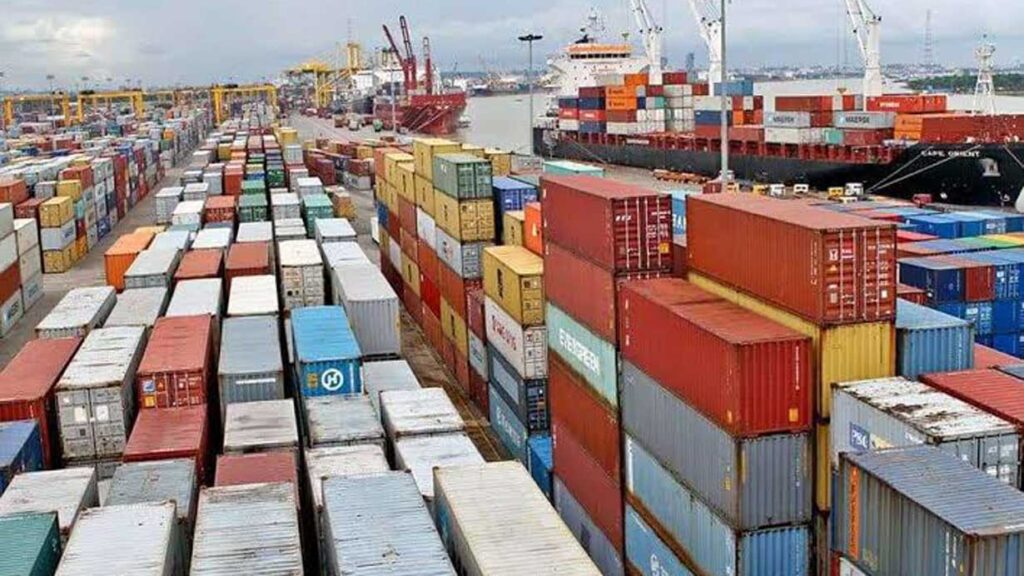 CURRENT REPORT BLOG the Central Bank of Nigeria (CBN) has recently announced a significant decision to lift Forex restrictions on the importation of 43 items that were initially implemented eight years ago. This move is expected to have a notable impact on various sectors of the Nigerian economy and international trade.
CURRENT REPORT BLOG the Central Bank of Nigeria (CBN) has recently announced a significant decision to lift Forex restrictions on the importation of 43 items that were initially implemented eight years ago. This move is expected to have a notable impact on various sectors of the Nigerian economy and international trade.
Here’s a comprehensive list of the 43 items for which the Forex restrictions have been lifted:
1) Rice
2) Cement
3) Margarine
4) Palm kernel and palm oil products
5) Vegetable oils
6) Meat and processed meat products
7) Vegetables and processed vegetable products
8) Poultry and processed poultry products
9) Tinned fish in sauce (Geisha)/sardines
10) Cold rolled steel sheets
11) Galvanized steel sheets
12) Roofing sheets
13) Wheelbarrows
14) Head pans
15) Metal boxes and containers
16) Enamelware
17) Steel drums
18) Steel pipes
19) Wire rods (deformed and not deformed)
20) Iron rods and reinforcing bars
21) Wire mesh
22) Steel nails
23) Security and razor fencing and poles
24) Wood particle boards and panels
25) Wood fiberboards and panels
26) Plywood boards and panels
27) Wooden doors
28) Toothpicks
29) Glass and glassware
30) Kitchen utensils
31) Tableware
32) Tiles (vitrified and ceramic)
33) Textiles
34) Woven fabrics
35) Clothes
36) Plastic and rubber products
37) Polypropylene granules
38) Cellophane wrappers and bags
39) Soap and cosmetics
40) Tomatoes/tomato pastes
41) Eurobond/foreign currency bond/share purchases
42) Piston crowns
43) Ball bearings
44) High voltage cables
45) Transformers/switch gears
46) Gas cylinders
This decision by the CBN is significant as it opens up new opportunities for businesses, traders, and industries involved in the importation of these items.
1. Economic Growth: By removing Forex restrictions on these 43 items, the CBN aims to stimulate economic growth by encouraging importers to invest in and expand their businesses. This will contribute to job creation and overall economic development.
2. Price Stability: The removal of Forex restrictions may help stabilize prices for the items on the list, making essential products more affordable for consumers. This could have a positive impact on inflation rates and the cost of living.
3. Diversification of the Economy: This move aligns with the Nigerian government’s efforts to diversify the country’s economy. It allows for increased trade in various sectors, reducing dependence on a narrow range of commodities.
4. Enhanced Competition: As Forex restrictions are lifted, competition among importers and local producers is likely to intensify. This can lead to improved product quality, innovation, and better services for consumers.
5. Attraction of Foreign Investments: The CBN decision may attract foreign investors interested in participating in Nigeria’s growing economy, leading to potential investments in manufacturing, agriculture, and other sectors.
6. Positive Impact on Business: Nigerian businesses that rely on these items as inputs for their products can now operate more efficiently, thanks to the ease of access to Forex for importation.
7. Export Opportunities: This policy change might encourage local producers to look beyond the domestic market and explore export opportunities for their goods, benefiting Nigeria’s trade balance.

In conclusion, the CBN decision to lift Forex restrictions on these 43 items represents a promising step towards economic growth, diversification, and development in Nigeria. As businesses and industries adapt to this new landscape, we can expect a positive impact on both the local and international fronts. This change is likely to bring a breath of fresh air to the Nigerian economy and create opportunities for various sectors to thrive. Stay tuned for more updates on how this policy shift will influence Nigeria’s economic landscape.












